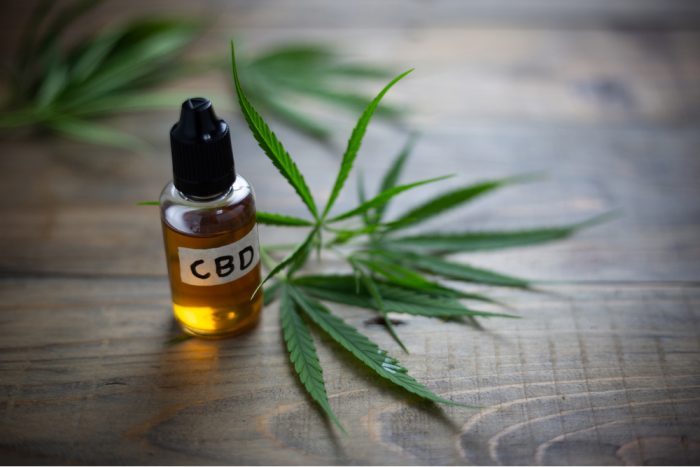The hospitalization of a child has raised questions about the safety of CBD oil. Is your oil contaminated?
Cannabidiol (CBD) extract is quickly gaining popularity as a natural alternative for managing pain, inflammation, and a variety of medical conditions, including epilepsy. However, recent reports have called into question the safety of CBD. Stories have surfaced regarding the compromised quality of some CBD oils.
An eight-year-old boy from Washington state was recently hospitalized and his case was published in the medical journal, Clinical Toxicology. Like many other parents of children with severe seizures, his mother and father were desperate to find a way to control his condition. After giving him CBD, his parents noticed a decrease in frequency over a nine to ten day period. Suddenly, and seemingly out of no where, the boy had 14 seizures in 24 hours. This frequency was much higher than usual and was, of course, troubling.
During this time, the boy’s parents reported dilated pupils, agitation, and a variety of other abnormal symptoms in their son. Fortunately, he eventually returned to normal. But the question remained: why did this happen? And more importantly, why did the CBD oil work at first, and then cause sudden adverse effects? Was it the CBD oil that caused these side effects, or something else?

How Do You Know If Your CBD Oil is Safe?
CBD oil is the concentrated extract of the cannabinoid CBD, found in cannabis plants. The contents of CBD oil varies with different concentrations of CBD, THC, and other cannabinoids. And depending on full spectrum versus isolates, there may also be terpenes and flavonoids.
The concentration of cannabinoids depends on the cannabis used during the extraction process. Both full spectrum extract (oil containing other cannabinoids and terpenes) and CBD isolates are available. Your condition and needs will dictate which version you purchase.
CBD has a multitude of therapeutic benefits, such as potentially alleviating symptoms of cancer, improving symptoms of autoimmune diseases, inflammation, pain, and anxiety. But, there is limited knowledge about the long-term effects of chronic CBD consumption. Currently, there is no conclusive evidence that there are adverse risks and it appears safe for the majority of people, including children.
It’s important to note that these safety reviews are specifically referring to CBD itself and don’t include CBD oil that may be obtained from unregulated sources. Unregulated CBD could very well contain harmful substances, such as metal particles, synthetic cannabinoids, pesticides, and molds. All of these contaminants could cause adverse side effects seen.
This little boy’s story is a prime example of the need for proper safety regulations and control. After doctors sent a sample of the boy’s CBD oil to a laboratory, researchers discovered that it contained a synthetic cannabinoid called AB-FUBINACA. AB-FUBINACA, according to research has caused multiple fatalities, including fatal coronary artery thrombosis in a 41-year-old.
CBD Oil Contaminate? How Common is This?
A review of Dutch cannabis oil studies found large inconsistencies in cannabis oil content. One study looked at 46 different cannabis oil samples taken directly from patients. Researchers analyzed these samples for cannabinoid content; 29 of the samples were homemade and 17 were purchased online. Twenty-one labels indicated cannabinoid content.
The results showed that the actual content of the CBD product differs significantly from the claimed content, with 7 of the 21 labeled samples containing no cannabinoids at all. Out of these 7, there were both homemade and commercially obtained products. Some of the other oils contained only THC and little to no CBD, when the bottle claimed the opposite ratio. The same research review found that even cannabis sourced from some licensed producers in California and Canada had pesticides. And this is no small risk.

Standardized Contaminant Testing is Needed
Although there are different types of contaminants, there are professional analytical labs in place to routinely, and easily, screen for these contaminants. For example, detecting heavy metals in cannabis oil is similar to finding the same contaminants in olive oil. The problem is that although there is a range of analytic methods to find contaminants, researchers haven’t agreed upon the most accurate methods. This means that, based on the lab, a cannabinoid analysis of one type of CBD oil can differ from another lab’s analysis. A lack of standardized method leads to inconsistency, and with inconsistency comes a risk for patients. Patients may begin to distrust the labeling of their CBD, which isn’t good, especially in a new industry.
Overall, purely extracted CBD oil is safe and effective for helping to improve a range of health conditions. The problem with this new and rapidly growing industry is that it can be hard to regulate a consistent form of testing. This is especially dangerous when producers can gain financially from creating a less pure, contaminant-free oil. Unfortunately, CBD products containing contaminated such as molds, bacteria, and synthetic cannabinoids aren’t uncommon and may pose a health risk to patients. We need more consistent and standardized testing of CBD oil as soon as possible. In the meantime, make sure to research your product. Look at customer reviews and look for their testing methods.






Wisnu made
” improving symptoms of autoimmune diseases” ? Means make the immune more active?
Jennifer Grant
That depends on the autoimmune condition. PANDAS/PANS, for example has a malfunctioning autoimmunity that causes antibodies to attack the basal ganglia…not related to inactivity at all.